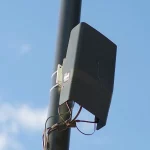Bill Proposed to Improve UK Consumer Telephone Service Standards

The Conservative MP, Robert Halfon, has proposed a new Private Members Bill that seeks to clampdown on utility providers (broadband ISPs, energy etc.) and “certain other services” that run telephone support lines, specifically those that make it difficult or force you to wait for ages before being able to speak with a human.
The bill, which was proposed in parliament yesterday (using the Ten Minute Rule) under the title – ‘Consumer Telephone Service Standards‘, appears to suggest the imposition of “maximum waiting times” (i.e. before you can speak with a human) for customers who are contacting such providers.
On top of that, it will also propose to “restrict the use of automated menus” on telephone services offered by such companies and enforce “financial penalties” for companies that fail to meet its standards (e.g. if operators make you wait longer than 10 minutes on the phone). We suspect Ofcom would need to be drawn in to assess all this.
Advertisement
Robert Halfon MP said:
“How often do we hear the dreaded phrase, “Sorry, we’re rather busy right now, but your call is important to us. Please hold the line”? How often do we have to wait 15, 20, 30 or 40-plus minutes on the phone to get through, after spending the first five minutes being asked to press 1, 2, 3, 4, 5 or 6? How often do we wait all that time to get through and then get cut off, so that we have to start the whole horrific process all over again?
Utility companies, big multinationals with chief executives earning huge salaries, have created a Kafkaesque torture chamber of customer service. That is now happening every day across the United Kingdom, and has been for some time now, as families all over Britain try to contact their utility and service providers. Customer service standards plummeted during the pandemic, as companies grappled with the new work guidelines, but they still have not recovered and, worse still, some companies use that as an excuse, despite most workplaces having returned to normal.
…
Often, once we have surpassed such messages and clicked all the right buttons, we are then told by an automated voice that in fact the best route is via an online portal or text chat, despite having already been on hold for 20 minutes—and that is if we are even lucky enough to find the necessary contact details.”
The MP goes on to highlight the example of how his office colleague tried to purchase a NOW Broadband (NOW TV) package, but still hadn’t got it connected after 2 months of waiting. “They were told, incredibly, that their complaint about the delay had in fact caused a further delay to their service. Yet there are no consequences for increasingly anxious and frustrated consumers across Britain,” said Robert Halfon. But this seems like a different issue from the one the proposed bill is intended to tackle, and we don’t have the ISPs perspective (such delays are usually due to problems on Openreach’s network – possibly related to a lack of port capacity).
The subject of NOW TV also came up again, this time by highlighting a more related point, with the MP noting that “consumer-facing service providers seem to be finding any way to avoid blame or accountability, to the point that NOW TV, talking to a member of my office, claimed that the death of Her late Majesty the Queen was the reason for any potential waiting times“. In fairness, this might be true if the call occurred around the recent bank holiday (funeral), but the MP didn’t elaborate.
Robert Halfon appears to be advocating for a system similar to the one that Spain recently introduced, which forced big companies and utility firms to answer calls within 3 minutes or face fines of up to £85,000. Under that law, consumers also gained the right to be put through to a human on the phone, rather than having to deal with an automated system. We’re sure many people would support this idea.
At this point it’s worth highlighting Ofcom’s annual study of service quality (here), which reported on the average call waiting time (minutes:seconds) for broadband ISPs including BT, EE, KCOM, NOW TV, Plusnet, Sky Broadband, TalkTalk, Virgin Media and Vodafone. The overall average wait came out as 2:16 (two minutes, sixteen seconds), although Virgin Media took 3:45 mins and KCOM 8:53 mins!
Advertisement
Robert Halfon MP added:
“We need a similar law in the UK to ensure, first, that no one would have to wait longer than 10 minutes on the phone—even that is pretty generous—secondly, that every customer would get through to a real human being, as opposed to an automated machine or robot, and thirdly, that companies would remove the “1, 2, 3” options, which are all about trying to get customers off the phone instead of talking to them. Should businesses fail to meet those standards, they will be fined heavily and the money paid back to the customer through rebates.
We are in a cost of living crisis. Consumers need easy and accessible customer service from their energy and utility providers. Companies such as SSE, which supplies energy, phone and broadband to UK homes, should not be allowed to leave people waiting for up to 50 minutes. Utility and service providers have a duty to their consumers, and currently, practices are not good enough with telephone services aiming to get people off the phone, rather than on it. That needs to change, which is why this Consumer Telephone Service Standards Bill is so vital to making large providers accountable. As the Daily Mail says, “Pick Up or Pay Up.” “
Naturally, there are some potential risks with this approach, since no company could accurately predict or economically hire enough staff to cope with every major peak in support demand. Instead, businesses usually provision enough staff to cover typical demand (although some clearly aren’t even doing that), thus there would need to be some allowance for unexpected events.
Another risk is that such a policy might result in more UK job losses, such as if some companies decide the only way to meet the stricter standard is by outsourcing more of their support centres abroad to benefit from cheaper labour (some already do this, but others like BT have moved back to the UK and seen an improvement), or perhaps by scrapping phone support lines completely.
One way or another, the extra costs of meeting such a standard would need to be met somewhere, which usually ends up in customers paying higher bills. But many people may tolerate a small increase in return for a more dependable and responsive level of customer support, provided the operator clearly communicates that to them.
The catch here is that only a minority of Private Members Bills ever become law (they can be tabled by any MP, not only those from the Government), but they do often serve a purpose by creating publicity around an issue and encouraging wider debate.
Advertisement
At the time of writing, we haven’t yet seen any text from the bill itself, but it already has the support of several other MPs – Margaret Ferrier, Dame Caroline Dinenage, Sir Roger Gale, Peter Aldous, Daisy Cooper, Kevin Hollinrake, Mr Louie French, Mrs Emma Lewell-Buck, Lucy Allan, Stephen Metcalfe and Jim Shannon.
Mark is a professional technology writer, IT consultant and computer engineer from Dorset (England), he also founded ISPreview in 1999 and enjoys analysing the latest telecoms and broadband developments. Find me on X (Twitter), Mastodon, Facebook, BlueSky, Threads.net and Linkedin.
« EE Boost UK 5G Rollout with New Ericsson AIR 3268 Radio Antennas
Altnet UK ISP Box Broadband Appoints New Divisional CEO »






















































Phone calls are so cheap now that I don’t see why I should wait on the line, put me in a virtual queue and call me back if you’re busy.
I’d also quite like companies to have a way of contacting them via email, that seems to have been mostly abandoned though in favour of sitting around on the phone or using some live chat.
I’m not sure you can make a law about how long people need to wait on the phone for, what would it solve? I’d rather wait for someone who has been given the necessary decision-making powers to fix my problem, than have the call answered quickly by someone who reassures me that they sympathise with my complaint but can’t do anything.
Agree, the loss of email can be most annoying, although it’s easy to understand the hassle given the volume of spam that public addresses would have to handle.
Nice idea in principal but as discussed will likely just massively increase costs to consumers. Would be better to force providers to publish monthly median wait times, therefore those who value quicker support can choose a provider appropriately. I suspect a lot of people would happily pay more per month to get the level of support they would require if it was published.
Of course this wouldn’t apply to businesses who have a monopoly, so DVLA, passport office, etc. So a minimum standard should be applied to them.
It’s not going to lead to “massively increase costs to consumers”. Virgin Media has over 5.8m fixed-line customers, and a penny added to each of their monthly bills would bring in £696,000 per annum, more than enough to fund a better service.
Some lines I find annoying…
“Your call is important to us” – why am I having to wait so long for your answer?
“We are experiencing higher call volumes then normal” – please tell me how long the normal wait is!
All this will cause is further uptake of Indian call centres. And quite frankly, I would rather remain on hold.
Agreed. Down with outsourcing.
100 %
How about government and all of their agencies, DVLA, Passport Office, NHS, etc setting an example?
Yes, yes, and yes. but they are blind to this, I would say the country is falling apart, but the problem is it have already fallen apart. Politicians, a waste of time the lot of them.
Rather than giving reasons for companies to increase their service costs by claiming to add more Filipino customer service staff, or more Serbian customer service staff in the case of Hyperoptic, I’d rather companies just have multiple contact options
There is no reason to not have a webchat option. A single rep can handle 10 conversations in parallel, without any major wait, without any big cost and without having the rep majorly demoralized by rude customers
Should also include online chat (supposedly AI bots) clearly written by a moron.
All providers should proactively address service problems. Most of them have the data to determine you aren’t getting what you are paying for. When did you ever get a message that “your broadband is performing below the promised speed, so we have asked engineering to look at it”.
Also, they should ensure the products and services they provide are actually compatible (unforgivable) and described accurately (expectations). In addition, why can I order online but they make cancelling so difficult.
The major flaw in proactively looking for faults on a service is that only certain faults would be detected. For example, there is a proactive system that can and does identify certain faults (primarily joint breakdowns) however people reporting faults often have internal issues.
The pushback for an automated test, for example typing in your number and letting the system run a test before lettingyou speak to a human, might not be perfect but offers more solutions than removing it would solve. For example, if it’s a service outage that will be identified and communicated. If it’s a simple case of router maintenence, it’ll perform that for you.
This in turn helps to isolate calls that can be solved with a simple means and free’s up the call time for more complex issues that *do* require someone to properly dig into or things that won’t be detected by any proactive system such as home wiring or set up issues.
Longest wait I had was with 111 to try to speak to a doctor…although I am passionate about decent broadband I think the health of our elderly is a tad more important for MPs to bother with.
Persistent long call wait times to supplier Help Desks are merely that supplier transferring their operating costs to their clients through inadequate staffing. The threat of substantial fines, following official warning, will catalyse management action to fix Help Desk resource levels. It might also cause management to undertake root cause analysis into the problems that spark the calls to their Help Desk.
If time to answer is high then just send engaged tone.
I work in a call centre for a major ISP. Some days are back to back calls then other days you can wait 20 minutes before speaking to someone. Take for example the other day when whatsapp went down, the queue was massive and most of the people I spoke to that morning had nothing wrong with their service so waited 20 minutes to be told whatsapp is down. Problem is for some people, common sense doesn’t appear to be an option. A simple trouble shoot, google search and there would of been normal service levels that day. When Virgin media went down earlier this year at least half the calls I took that day were customer ringing the wrong company. When they call the number it tells them straight away which company they were ringing but still decided to wait probably half an hour to get through only to be told them had rang the wrong number. See people who come up with suggestions like this bill clearly have no concept of how inept the general public sometimes are and this would never work.
My doctors surgery has an option to press 1 to keep your place in the queue and it calls you back when you get to No1
I fail to understand why these telecommunication providers can’t do the same
My biggest issue with Sky/VM is having to call just to change my package. Why can’t there be an option to change your package down, you can upgrade but not downgrade. This would free up advisors to deal with technical issues.
My landlords called Orbit, persistantly are so slow to (not) answer calls that a second class letter complaining about the phone service along with the original issue is quicker to actually write and take to a post office instead.
I called a Building Soc at precisely at 0800 when they opened, to be met with the normal ramble
Sorry, we’re rather busy right now, but your call is important to us. Please hold the line”
But as soon as the message finished I was answered immediately.
So they weren`t busy at all.